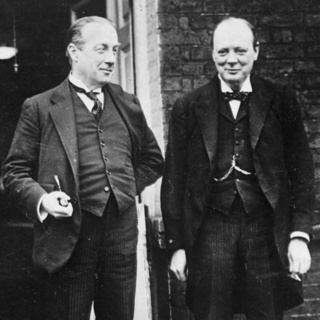Jaksokuvaus
The Labour government was kicked out of office at the 1924 General Election, in a campaign marked by the Conservative-leaning Daily Mail engaging in some fake news. It published a forged letter claiming to be from the Soviet leader, Zinoviev, suggesting that re-electing Labour would prepare the ground for a Communist takeover. As it happens, Labour’s popular vote went up by a million. But Tory votes were spread much more efficiently across constituencies, so they emerged with a solid majority in the Commons, while Labour lost seats. That result seemed to vindicate Baldwin’s decision to call the previous election in 1923: though the Tories lost, because it rejected the notion of tariff protection, it removed the issue from the agenda and the divisions it produced within the Tory party. They therefore went into the 1924 election united and the effect was just what they wanted – a landslide victory. Baldwin’s position was enormously reinforced. The 1924 election was also when Churchill returned to parliament, but no longer as a Liberal. He was back among the Conservatives in all but name, and to the amazement of many, Baldwin gave him what many see as the second most important position in government, that of Chancellor of the Exchequer. In that position, he took Britain back to the gold standard, against his own initial judgement. It was also against the view of Maynard Keynes, who thought it would damage industry, which it indeed did. The result was new unrest, particularly in the coal industry, with mine owners demanding longer hours and lower wages, which the miners were determined to resist. This time, they had solid support from other unions. The government bought a nine-month stay of execution by paying a subsidy to coal to protect wages and conditions but as the period for which the subsidy was paid drew to an end, tensions grew. Both the mine owners and the miners were adamant. It began to look as though a general strike was inevitable. Did that put Britain on the brink of revolution? Illustration: Baldwin, Tory leader and PM, with Churchill, Chancellor of the Exchequer, after re-ratting to the Tories. Public Domain Music: Bach Partita #2c by J Bu licensed under an Attribution-NonCommercial-No Derivatives (aka Music Sharing) 3.0 International License
